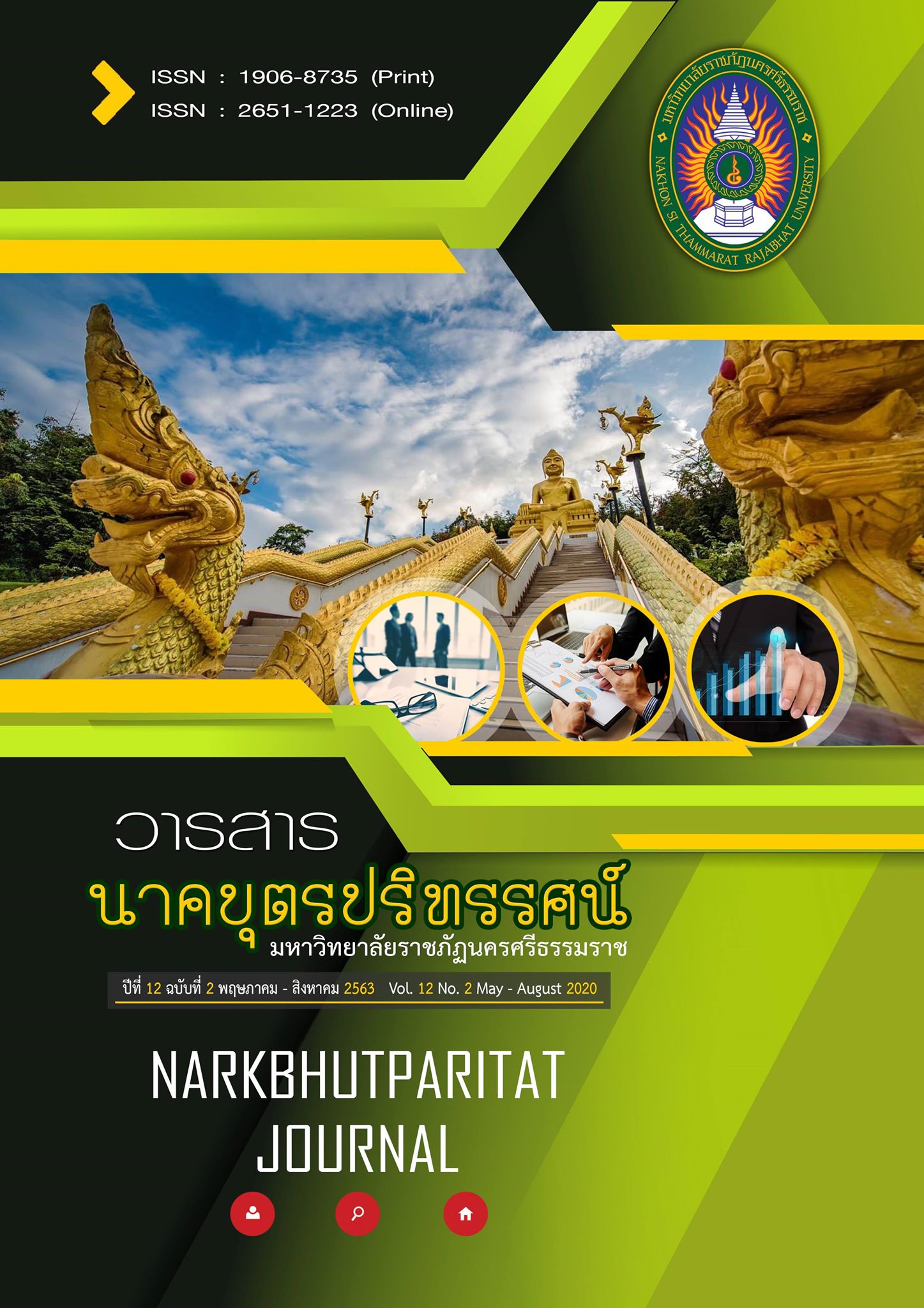มัทนะพาธา : สถานภาพและบทบาทของผู้หญิงในมุมมองสตรีนิยมเชิงนิเวศ Madanabadha : Status and roles of women in ecofeminism
Main Article Content
Abstract
Madanabadha is the dialogue play of His Majesty King Vajiravudh (Rama VI) of Rattanakosin. It is Thai worthy literature in beautiful wording and language aesthetics. It is also respected by Royal Society of Literature to be a good model for composing literary works of the dialogue play written by using verse. The study of Madanabadha: Status and roles of women in ecofeminism aimed to studying the status and roles of women, the connection between women and nature and the concept of ecofeminism and patriarchy by using the ecofeminism as the guideline of the study. The study showed that the status and roles of the women in Madanabadha presented through two female characters of Madana and Chanthee. They both were under the status and roles of children and wives in terms of Thai belief and society. For the connection between women and nature, there were the connection in terms of history, concept, practice and symbol of the characters which were connected to the nature. For the concept of ecofeminism and patriarchy, the study revealed that the patriarchy played an important role to tell the story by creating the male characters to lead the story and to control the women and nature to meet their needs for example, the action of Suthed towards Madana by cursing her to be the rose.
Article Details
References
Chahongram, P. and et al. (2013). Repetition of Patriarchal ideology in Compulsory education text book of Ministry of education. Sriwanalai Wijai, 3(5), 1-12. (In Thai)
Charoensin-o-larn, C. (2001). Discourse of development. Bangkok: Wiphasa. (In Thai)
King Rama VI. (1983). Madanabadha. Bangkok: Board of Directors of the King Rama VI Foundation. (In Thai)
_______. (2009). Madanabadha. Bangkok: Wisdom. (In Thai)
Purisinsit, V. (2009). Gender: Sexuality. Midnight University. Retrieved 2020, January 3, from http://61.47.2.69/~midnight/midnightuniv/newpage91.htm. (In Thai)
Ritsrithon, O. (2016). Ueang-San-Peng: Myth and meaning of ecology in Rue-du-dao. Academic seminar documents. Retrieved 2020, January 3, from http://www.thaicritic.com/?p=3631 (In Thai)
Soommart, S. (2013). Women and nature in Thaaithao Sutjaritgoon’s Novels: Ecofeminist approach. (Master of Arts). Khonkaen University, Graduate School, Program in Thai Language. (In Thai)
Sangkhaphanthanon, T. (2013). Phuhying-ying-reu. Phatumthanee: NaKon. (In Thai)
_______. (2016). Contemporary Literary Theory. Phatumthanee: NaKon. (In Thai)


